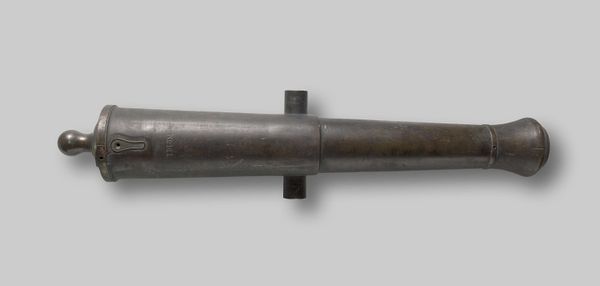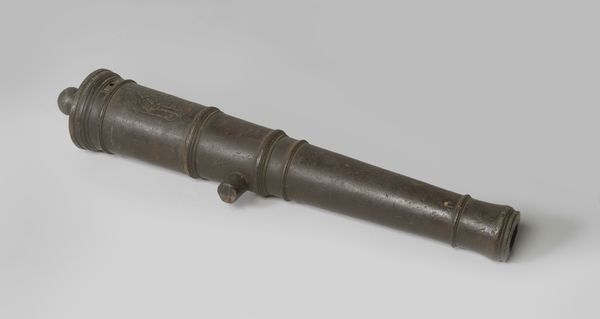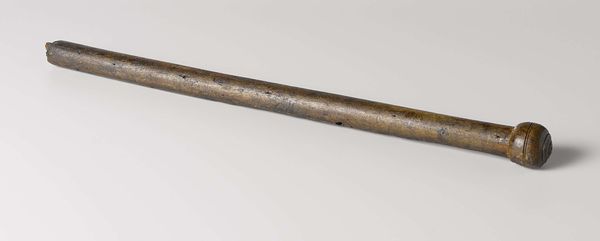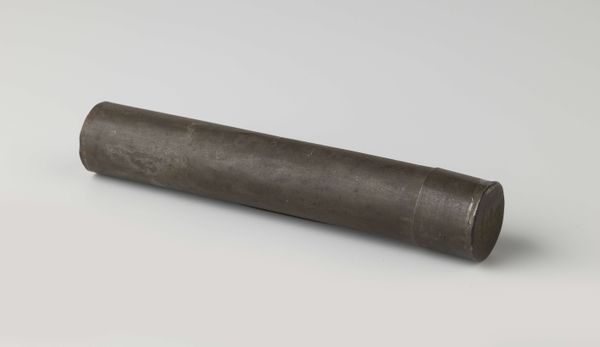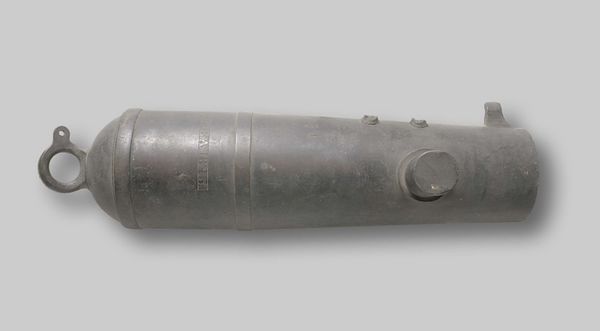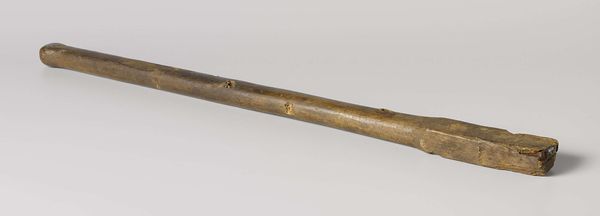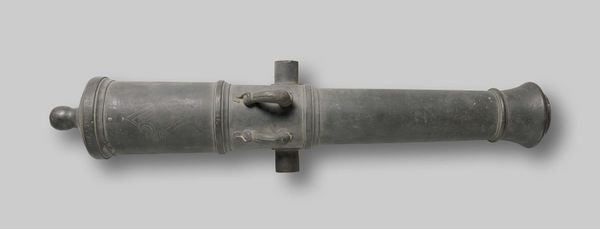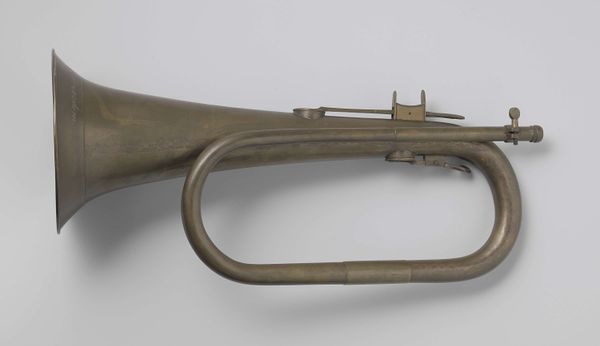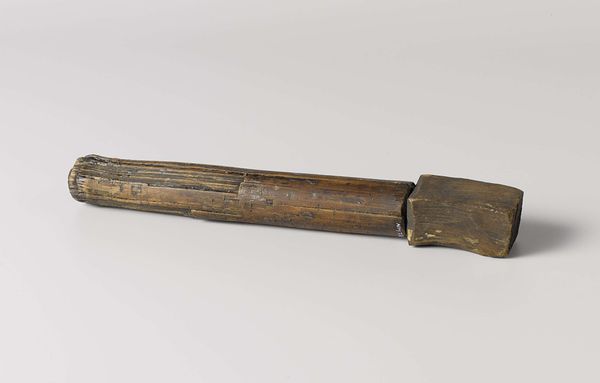
metal, bronze, sculpture
#
3d model
#
3d rendering
#
medieval
#
3d printed part
#
metal
#
plastic material rendering
#
virtual 3d design
#
bronze
#
3d shape
#
prop product design
#
geometric
#
sculpture
#
metallic object render
#
3d modeling
#
history-painting
#
product render
Dimensions: length 58.5 cm, diameter 115 mm, diameter 18.5 cm, weight 41.8 kg
Copyright: Rijks Museum: Open Domain
Editor: This is a bronze muzzle-loading cannon, or at least, part of one, made by Maritz et Fili in 1845. It feels like an artifact, heavy with untold stories. How should we interpret an object like this today? Curator: We see a symbol of power and, perhaps, of vulnerability. Bronze cannons like this one evoke a past of conflict, but they also represent a pinnacle of 19th-century craftsmanship and industrial advancement. Consider its static, almost stoic presence – does it elicit a sense of pride in military history, or a chilling reminder of its destructive purpose? Editor: I hadn’t considered that duality. It’s intimidating and impressive at the same time. Were cannons like this common? Curator: Cannons, particularly bronze ones, served as potent symbols of national identity and authority. Their design often incorporated allegorical figures or national emblems, visually reinforcing their symbolic weight. This particular piece, devoid of such embellishments, leans towards function, yet the bronze material itself speaks to a certain status. Do you notice how the texture of the bronze adds to its aura? Editor: Yes, the wear and slight discolouration definitely give it character. Almost a life of its own. Curator: Indeed. This patina is a record, whispering of past events. Its form recalls a history of calculated force, but that very history is complex and layered, dependent on whose narrative you're focusing on. Editor: It's amazing how one object can embody so many different ideas and emotions. I’ll never look at cannons the same way again. Curator: Exactly. Objects like these function as visual mnemonics, inviting us to consider the cultural echoes and historical implications embedded within.
Comments
No comments
Be the first to comment and join the conversation on the ultimate creative platform.
